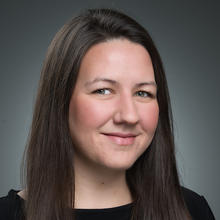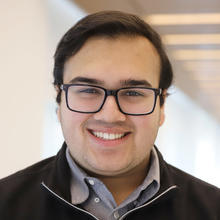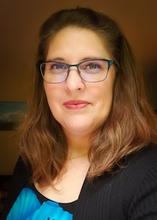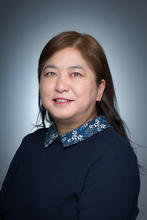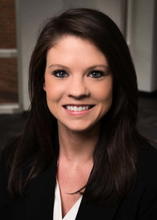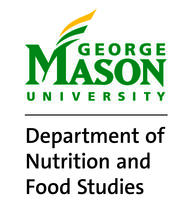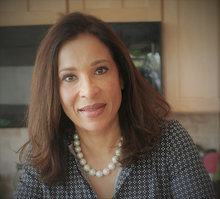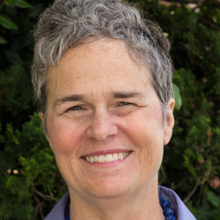Faculty and Staff Spotlights highlight a faculty member's research, teaching activities, or how they support the College. All spotlights are presented on this page as an aid to discovering faculty and staff members working in areas of interest or potential collaboration and to simply get to know the faculty and staff.
- March 21, 2024Learn more about assistant professor in the Department of Global and Community Health Iulia Fratila, how she supports her students, and her passion for researching psycho-socio-cultural factors of various risk behaviors.
- March 1, 2024Samba Pathak is the Program Manager, Interim Research Lab Manager, and Administrative Operations Specialist in the Department of Nursing. Learn how public health and the arts (he holds a BA in Theatre) go together!
- March 1, 2024Find out how Allison's love of science at a young age led her to become a registered dietitian and more
- January 25, 2024Dr. Inoue spent 12 years working as a registered nurse in her home country where she dedicated her career to caring for patients with chronic illnesses, such as hepatitis, cancer, and AIDS. Her extensive clinical experience sparked her interest advocating for patients’ autonomy and dignity. Get to know more about Dr. Inoue.
- December 1, 2023Learn more about the senior administrative assistant to the dean.
- October 26, 2023As an international scholar, Maryam Farvid has extensive experience engaging in academia cross-nationally, including in Iran, Australia, and the United States. This experience has empowered her to cultivate a vast network of diverse collaborations across the globe and to conduct chronic disease research across different social and cultural landscapes.
- September 28, 2023Meet Allison Miner. Miner is thrilled to join the Nutrition and Food Studies department as an instructional assistant professor. She started as a fashion design major in college, but after taking a nutrition course for her science requirement, she was hooked.
- August 23, 2023Associate Professor Carol Cleaveland began exploring Latino immigration in 2004 utilizing ethnographic research methods and working with Mexican day laborers in Freehold, N.J., to understand how the day laborers negotiated police harassment and anti-immigrant ordinances. Since 2013, Dr. Cleaveland’s work has focused on Latinas from Central America and immigration-related trauma, including experiences in human smuggling. She was awarded study leave during the Spring 2023 semester to complete her work on two projects.
Getting to Know Dr. Michael Bloom--A New Faculty Member in GCH
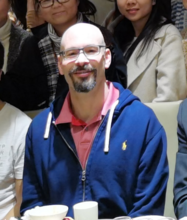
Michael Bloom is an Associate Professor of Global and Community Health and is new to the University this academic year. Prior to coming to Mason, he was a member of the Department of Environmental Health Sciences at the University at Albany School of Public Health in upstate New York. His research focuses on investigating the impacts of environmental pollutants on human health.
Michael collaborates extensively with investigators from various institutions on multiple research projects related to the impact of environmental pollutants on human health. Some of these have included the associations between persistent organic pollutants (POPs) and thyroid function, between drinking water arsenic contamination and pregnancy outcomes, between toxic trace elements and in vitro fertilization (IVF) outcomes, between oxidative stress and IVF outcomes, between gestational exposure to POPs and childhood body composition and neurodevelopment, and between air pollution and urban greenspace and respiratory, metabolic, and cardiovascular health. Presently, his work is focused on investigating race-based health disparities in the fetal developmental impacts of gestational exposures to non-persistent organic agents found in plastics and personal care products.
Michael is teaching undergraduate applied health statistics this Fall. He has also prepared and delivered several graduate and post-graduate level workshops and “short-courses” to domestic and international students. Michael has mentored and advised graduate students, both at the Master’s and doctoral level.
In his private life, Michael enjoys learning new languages, freezing on the top of a mountain bound to a pair of skis, and joining his dog Hudson for a long run!
Medicaid Policy Research
Study Leave- Fall, 2021
Alison Cuellar
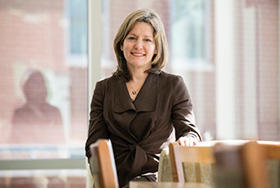
My study leave plan involved collaborating with senior officials in the Commonwealth of Virginia’s Division of Medical Assistance (DMAS) which oversees the Medicaid program. Nationally, Medicaid and the Children’s Health Insurance Program (CHIP) provide health and long-term care coverage to more than 70 million low-income children, pregnant women, adults, seniors, and people with disabilities. Relative to other funders, Medicaid policy grapples disproportionately with care to communities that have poor overall access, with policies to sustain safety net providers, and with coordination across health and social services to improve health and contain costs. Under federal law states have flexibility in administering the Medicaid program, determining its scope and seeking additional waivers to allow for policy experimentation.
During my study leave I worked John Morgan, MD, Chief Clinical Innovation Officer, Lauryn Walker, PhD, Senior Advisor, Health Economics and Economic Policy, Jennifer Palazzolo, PhD, MPH,Senior Economics Researcher, as well as Ashley Harrell, ARTS Senior Program Advisor, Division of Behavioral Health. I had access to unique DMAS data and access to provider listservs. Unfortunately, the DMAS office did not permit onsite work during the fall study leave, all contact was virtual. However, I maintained weekly meetings with DMAS staff discussing policy analyses and preliminary results. We discussed prenatal care adequacy, claim analyses related to pregnant women with OUD, and several issues related to telehealth care quality. These analyses dove-tail with an ongoing project with DMAS to conduct interviews with providers and patients, funded by the National Institute for Health Care Management where I am PI.
The byproduct of this study leave has been to forge a stronger research relationship between GMU and DMAS. We have extended the DUA and are pursuing a 3-way DUA with the entity that holds all-payer claims in Virginia. These relationships benefit graduate students in health policy and informatics, and potentially other departments. Since my study leave began, 7 students have participated in DMAS-related projects. At the conclusion of the quantitative and qualitative study analyses, I will submit two co-authored conference presentations and two publications based on policy research findings. I continue to work with DMAS on other opportunities for proposal submissions to external funders.
Meet Patriot Tracy Davidson
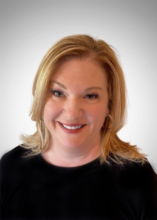
Tracy Davidson is an assistant professor in the School of Nursing. She is a homegrown Patriot earning her BSN and DNP from George Mason University and an MPH from George Washington University.
Tracy has 20+ years of experience in an array of healthcare settings including a robust education that encompasses both clinical nursing practices, community public health, and academia. Her true passion is working with and serving vulnerable populations as evidenced by her support to both Project Hope and the Peace Corps. During her time with GMU, Tracy has collaborated with the Mason and Partner’s Clinics (MAP) to facilitate and foster partnerships with local health departments and community agencies to create bi-directional learning opportunities and objectives for students and agencies. She has capitalized on her background by contributing as an editor to the American Nurses Association's Nursing: Scope and Standard of Practice, 5th Edition.
In light of the COVID-19 pandemic, Tracy has taken an active role in her local community with a focus on equity and at-risk communities. She partnered with the Prince William Health Department, Medical Reserve Corps, to create learning opportunities for GMU nursing students. The class offered much-needed support for COVID hotlines, testing, contact tracing, and vaccine clinics. She collaborated with Prince William County (PWC) Social Services and the MAP Clinic to create access to medical care, treatment, and COVID support to the homeless. Most recently, she collaborated with GMU and AHEC to create training guidelines and evaluation for volunteers working as vaccinators and vaccine managers. Tracy loves being active in her community and volunteers twice a week with GMU nursing students to administer COVID vaccines in PWC, MAP Clinic, and GMU.
In her personal time, Tracy enjoys spending time with her husband, George and playing with her three children, Ethan, Madeline, and Eli.
Molly Davis, Ed.D
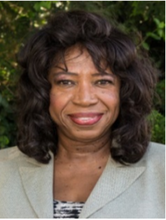
Dr. Molly Davis, Associate Professor in the Department of Social Work, has been a member of the social work faculty at George Mason University since 1988 – this is her 35th academic year at Mason! Dr. Davis is an experienced educator, administrator, expert trainer, researcher, and program developer. She has been the BSW Director of Field Education since 1995 and the Associate Director of Field Education since 2011, working with both BSW and MSW students. Dr. Davis is well connected to the surrounding community and to social work practitioners and educators across the country which has provided her the resources and networks to strengthen the field practicum experience for hundreds of George Mason’s social work students! Dr. Davis has also designed and implemented trainings for students in field education, field liaisons, and field instructors. Her knowledge, skills, and institutional memory have been an incredible asset to the success of field education in the department.
Dr. Davis is a faculty scholar with the Virginia Commonwealth University Geriatric Education Center and is an accreditation site visitor for the Council on Social Work Education. She is a recognized scholar who has developed innovative programming that has been featured throughout the country in areas of her expertise, such as gerontology, trauma and trauma-informed organizational change, trauma across the life course, interprofessional collaboration and intergenerational practice, cultural competency, disaster behavioral health and substance abuse. In social work field education, Dr. Davis has played a major role in leadership in the Mid Atlantic Consortium of Directors of Field Education and her work with students on special projects resulted in an award from then Governor Mark Warner. In addition, she has been selected twice in educational leadership projects at Oxford University.
Dr. Davis' "foot print" on the field education program specifically and the Social Work program generally in multiple areas reflect her contributions to the program from its early years to today. Dr. Davis is retiring in February 2023 and it is hard to imagine George Mason University Department of Social Work without her! All the best, and we are looking forward to hearing what retirement brings!!!
CPH Faculty Member Pierre Eklou In His Own Words
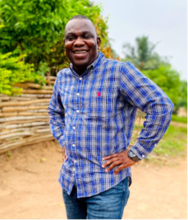
I am Kossi Pierre Eklou, best known by my middle name “Pierre.” I am an Assistant Professor for the School of Nursing; before my current role, I worked as an adjunct in the same department for 2 years. I am a psychiatric-mental health nurse practitioner (PMHNP) by training and enjoy clinical practice in addition to teaching. Aside from my professional life, I am a proud father of a 15-months-old daughter. I was born and raised in a small village in Togo, West Africa, and speak French, Spanish, and several local dialects.
My first job after nursing school was working as a psychiatric nurse on a forensic unit with Non-Guilty by Reason of Insanity (NGRI) individuals at a Virginia State Hospital, and I have developed a great interest in the field of psychiatric and mental health nursing/medicine ever since. This is, in part, because of how stigmatized mental health remains in the world, especially in third-world countries like Togo where there is, until today, only one psychiatric hospital and one psychiatrist for the entire country.
I developed a great passion for teaching from an early age; this led me to become a religious educator at age 9. Since January 2018, I have taught a variety of courses in both the undergraduate and graduate nursing curriculums. Of all the courses taught, the undergraduate psychiatric and mental health nursing class is, by far, my favorite. Not only does this class help shed some light on an important nursing/medical field that is often “overlooked” for our future nursing and healthcare workforce, but it also raises their inquisitiveness. Mental health/wellness is now more critical than ever given what the world went through these past couple of years. I believe that we cannot talk about “health” as a concept without including mental health.
My second favorite course to teach is research and evidence-based practice, which I have now taught at both the graduate and undergraduate levels as well as chaired several Doctor of Nursing Practice (DNP) projects to help translate research and evidence into clinical practice. The world is changing rapidly at the speed of light through technology and innovation, and we cannot stay idle if we are to compete with the rest of the world. To deliver the best care to our patients – to be the best clinicians, educators, researchers, and even administrators – one needs to stay on top of research and evidence-based practice. Although primary research is of interest to me, I am a bit biased toward translational research; needless to say, I look forward to collaborating with many of the great researchers here at CPH and Mason. Among others, my research interests are nursing education, behavioral health, addiction medicine, stress and coping, advancing psychiatric nursing education and practice, nurse practitioner education and role, forensic nursing, public/community and population health and wellness, and interdisciplinary collaboration.
Exploring Addictive Behaviors
Study Leave- Spring, 2022
Panagiota (Yiota) Kitsantas
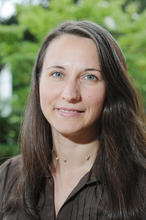
During my study leave in the spring semester of 2022, I prepared and submitted two grant proposals related to prenatal alcohol and cannabis use. In addition, I prepared a book proposal in statistics and epidemiology and worked on several research papers ranging from medication-assisted therapy for opioid use disorders among pregnant women to treatment outcomes for cannabis use disorder.
Kerri LaCharite: A Classroom Mentor and Faculty Leader
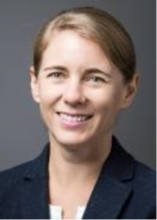
Kerri LaCharite is an educator, mentor, and a leader. Kerri has been in the Department of Nutrition and Food Studies since 2016. She teaches many of the classes in the Nutrition Kitchen, including Fundamentals of Cooking. In this class, students learn and experience culinary basics, including knife skills, mother sauces, basic cooking techniques, function of ingredients, food safety, and chemical and physical transformation of food during cooking. Kerri is organizing a roundtable on the challenges and lessons learned of teaching kitchens for the Association of the Study of Food and Society. She has also hosted cooking classes for the men’s and women’s basketball teams, a faculty and staff cooking workshop series, and a sustainability cookoff with Sodexo chefs to introduce local, seasonal foods to Mason students.
Kerri was recognized by students in the Thank-a-Teacher program last academic year with one student commenting: “Dr. LaCharite, I just wanted to thank you for being kind and understanding throughout the semester. It means a lot when a professor takes the time to encourage students. While the semester was challenging, you helped to keep me motivated and encouraged me when I was struggling. I greatly appreciate the kindness you showed and the enthusiasm you share with your students.”
Kerri is not only a recognized leader in the classroom but also amongst her faculty colleagues. She chaired the CPH Faculty Council from 2018-2020. During her time as chair of the Faculty Council, Kerri tackled developing and revising policies such as the CPH policy for term faculty promotions and the CPH workload policy and bylaws. During the last year of her tenure as Chair of the Faculty Council, Kerri served on the Administrative Council, providing the voice of the faculty during each meeting.
Social Work Researcher JoAnn Lee
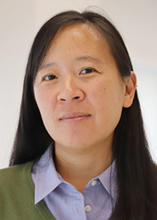
JoAnn Lee is an Associate Professor of Social Work and has been with CPH since 2013. Her research is geared toward developing knowledge of how to improve systems to better support the transition to adulthood for all youth. Her focus on systems change is inspired by Geoffrey Canada, founder of the Harlem Children’s Zone in New York City. As he put it, rather than helping a few “overcome the odds,” her goal is to help change those odds by improving public systems. Her research includes a focus on the child welfare and juvenile justice systems. Throughout her research, JoAnn has developed a range of collaborative partnerships, including with scholars from disciplines such as criminology, geography, and information sciences, as well as with local community agencies.
For example, JoAnn recently wrapped up a project in partnership with the Virginia Department of Juvenile Justice. She analyzed intake and exit data of youth on probation, who are regularly administered standardized risk assessments. Using latent class analysis, she identified seven patterns of service needs among these youth at intake, in collaboration with Dr. Faye Taxman. She is currently finishing up a manuscript that examines patterns of service need at intake and exit and youth transitions between these patterns. This line of inquiry provides insight into realistic expectations of change among these youth, especially for those with a complex array of service needs.
JoAnn has experimented with innovative techniques in her work. For example, according to Beck and Weiskopf (2017), she, in collaboration with Dr. Eric Waithaka, was the first to use an innovative data visualization technique in a scientific text in the field of social work and sociology; it is more commonly used in the fields of biomedical and computer sciences. Most recently, she has begun to apply Computational Social Science (CSS) techniques (e.g., social network analysis, multi-agent simulations) to advancing social work knowledge. CSS offers theoretical and methodological approaches that compliment current approaches to knowledge building. She is currently exploring the promise of using complexity theory in social work research, in collaboration with Dr. Mike Wolf-Branigin.
Several of her interests have come together in a study of the social networks of older teens in foster care. JoAnn is a volunteer on the evaluation committee for DC Family & Youth Initiative, whose mission is to support older teens in foster care. JoAnn was awarded an internal CPH seed grant to use social network analysis to evaluate the impact of DCFYI on older teens in foster care. Using a longitudinal design, she is identifying the teens’ social support network as they begin to participate in DCFYI, and expects to see multiple DCFYI adult volunteers become incorporated into the teens’ self-report of their social support network. This line of inquiry will add to our knowledge of how to facilitate the growth of social networks that will support teens who are aging out of the foster care system.
Additionally, JoAnn seeks to engage students in her research. She is a founding member of the Social Work integrative Research Lab (SWiRL) which provides undergraduate social work students hands-on, applied research experience. Through the current pod structure, JoAnn works closely with her Graduate Research Assistants, who work closely with her Undergraduate Research Assistants. Last semester, her students provided a training on interviewing to the SWiRL lab. Additionally, her students regularly participate in manuscript writing -- her most recent publication includes two former Graduate Research Assistants as co-authors. In January, her current Graduate Research Assistant co-presented with her at the Society for Social Work and Research annual conference.
A Productive Study Leave
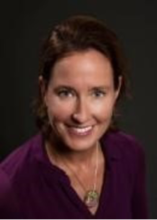
Holly Matto received a University Study Leave for the Spring, 2020 semester. Though she was incredibly missed in the Social Work Department, look at some of her great accomplishments:
Holly is on the board of directors of Ashes2Art, a community-based initiative that was established to provide an opportunity for first responders to express themselves through a wide range of artistic communication. During her leave, she wrote a manuscript for a special issue of the Clinical Social Work Journal, "Ashes2Art: Mitigation strategies for short-and long-term mental health distress in COVID-19 first responders." She is working with staff on submitting grant proposals as well.
Holly's work involves addictions and technology. She is interested in examining how the drug trigger-craving-relapse chain can be disrupted by using customized recover cue substitutions, and she has several grants pending, an internal CPH seed grant that she received, and an external grant that was received in August 2020 to support this work (we have to wait to hear more about this fantastic accomplishment)! She is the first author on a manuscript related to this work for the Journal of Social Work Practice in the Addictions which is under review: "When triggers become tigers: Taming the Autonomic Nervous System via sensory support system modulation."
During her leave, Holly also wrapped up a National Endowment for the Arts grant she was working on: "Effects of Arts Engagement Programs on Health-Related Quality of Life, Physical Performance, and Perception of Self in Older Adults: A Randomized Controlled Trial." Holly worked on preparing presentations and manuscripts based on this data. In addition, Holly published an entry in The Encyclopedia of Social Work, entitled, "Neuroscience and Social work", and received funding from PATH Foundation for the project: "PATH Foundation: Residential Treatment Evaluation." Funding for this work began in September 2020 and will end in late August 2021.
As mentioned earlier, stay tuned for an incredible announcement about a recent grant award that Holly and her colleagues have received!
Applications for the University’s Study Leave are due on October 1st of each year.
Introducing Faculty Member Rima Nakkash
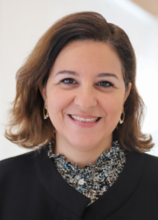
Rima Nakkash, PhD, joined the Global and Community Health Department as an associate professor in August 2021. Before coming to Mason, Dr. Nakkash was a tenured associate professor at the Health Promotion and Community Health Department, Faculty of Health Sciences, at the American University of Beirut. She coordinated the AUB Tobacco Control research group, was co-director of the WHO FCTC waterpipe tobacco smoking knowledge hub, Associate Director of the Knowledge to Policy Center, and Director of the Public Health Education Office.
In her previous job, she coordinated the review of the curriculum based on the CEPH MPH revised competencies which was initiated in 2018 and she then initiated set up of the faculty’s first Public Health Education Office to institutionalize faculty development programs, evaluation, and accreditation. Dr. Nakkash has taught extensively in the MPH program on foundations of public health, program evaluation, advocacy, community-based participatory research, and implementation science. As Associate Director of the Knowledge to Policy Center at the Faculty of Health Sciences, she developed citizen participation, citizen engagement, and advocacy initiatives focusing on tobacco and alcohol control policy. The most recent project at the center was a multi-country mentorship program working with leading research and university agencies in the Philippines, Vietnam, Nigeria, Jordan, Lebanon, Egypt, and Palestine to build institutional capacity on knowledge translation for tobacco control.
Nakkash is a prevention science expert with global health experience. Her publications range in local, regional, and international scope. Her areas of expertise are in tobacco, alcohol, and mental health promotion with a focus on youth and vulnerable populations. She has published on community-based participatory research as well as process evaluation and implementation research. In her work she promotes civic and citizen engagement in health policymaking, and knowledge translation of evidence-based public health to inform interventions and policy. She is committed to community participation and engagement as a genuine approach to advancing health equity and has initiated and led community coalitions in underprivileged communities. Her research projects always take a team science approach to advancing multifaceted health research questions and objectives.
In addition to being a leading scholar in tobacco control research prevention and policy evaluation, she is also a strong tobacco control advocate at the international level. In partnership with civil society and media, she had a major role in the passage of the most comprehensive tobacco control law while in Lebanon in 2011. In recognition of her efforts, she was granted the international WHO World No Tobacco Day Award in 2013 by Margaret Chan, the WHO Director at that time. She continues to serve as a technical expert on multiple WHO expert consultation meetings on FCTC implementation as well as the 2030 NCD roadmap development and has previously participated as a technical expert in FCTC conference of parties meetings. In 2018, Dr. Nakkash spearheaded a university-wide Presidential initiative to transform the American University of Beirut to a tobacco-free university.
Her most recent research interests are in commercial determinants of health, research ethics, and exploring interactions and conflict of interest between corporations and public health. She coordinates a global network on Governance on Ethics and Conflict and interest in Public Health (GECI-P). The network, set up in 2018, now has over 150 scholars and practitioners and aims to promote institutional safeguards and measures that protect public health goals from industries that produce products harmful to health.
Dr. Nakkash’s research is supported by a number of granting agencies such as the International Development Research Center (Canada), Wellcome Trust, (U.K), Cancer Research U.K, and the National Institute of Mental Health (U.S).
She currently resides in Fairfax with her husband and two children.
Taking Social Work Field Education to the Next Level
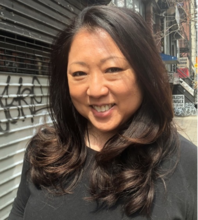
The Department of Social Work welcomed Dr. Kanako Okuda last June during the COVID 19 pandemic as the Director of Field Education. In addition, she is a licensed clinical social worker and social work educator. Prior to coming to Mason, Kanako was the Director of Field Education at Silberman School of Social Work at Hunter College, the City University of New York. Before Hunter, she was an education coordinator, field instructor, and lecturer at Columbia University. This year, Kanako was selected as a Field Research Scholar by the Transforming Field Education Landscape (TFEL) Project at the University of Calgary, supported by the Social Science and Humanities Research Council of Canada.
Kanako is passionate about field education and how students make meaning out of their learning through serving. Her work includes students' anxiety in field education (www.fieldanxiety.com) and is widely adopted by many social programs in North America. She is one of the leading members of the “Voting is Social Work” campaign to mobilize voter participation nationwide.
Field education can be envisioned as a hub for innovation and discovery. Kanako is currently actively seeking to transform students’ field learning experiences using virtual reality (VR). She is also conducting collaborative research with other institutions to improve students' field learning outcomes and other field education topics.
Kanako is a practicing clinical social worker through telehealth, serving hard-to-reach populations and individuals who may be ambivalent about mental health services. Throughout her career, she has been actively involved in social justice through designing and facilitating workshops for students and the community. Additionally, she worked as a pediatric oncology social worker at Columbia University Medical Center, offering psychosocial services to her patients and her families.
Kanako values relationships and the way she works with students, faculty, and community partners. She appreciates Mason's partnering agencies valuing our students' experiences collaborating to continue giving back to our profession in this challenging time, both personally and professionally.
You may want to explore Kanako’s relatively recent publications:
Okuda, K. (2020). The spiritual call to helping professions: Job crafting, meaning making, and field work as spiritual experience. Spirituality in Mental Health Practice: A Narrative Casebook, 1, pp. 37-46. Mason link.
Mann, A., Fisher, A., Lewis, B. M., Okuda, K., Sander, R. L. (2019). Voting is social work: What field educators need to know. Field Educator, 9(2), 1-4.
Okuda, K. (2018). Learning through meaning making: Applying job crafting in field learning. Journal of Teaching in Social Work, 38(5). 470-485. Mason Link
Okuda, K. (2017). Interprofessional work in pediatric medicine. C. Morano (Ed.), Perspectives on Interprofessional Education and Practice, pp.219-229. NASW Press.
On a personal note, she is a Japanese native who came to the US as a dancer then became a social worker.
Steven Rose, PhD
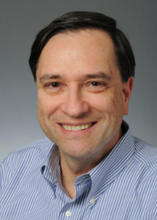
Dr. Steven Rose has been a tenured, full professor in the Department of Social Work at Mason for 19 years. An internationally recognized expert on group work and youth and adolescents, Dr. Rose has brought to Mason a wealth of knowledge and experience, which has been infused into the BSW and MSW curriculum. He has taught a variety of courses at the BSW and MSW level that emphasize his expertise in group work and practice with children and adolescents as well as courses on policy, research, and organizational leadership. Dr. Rose has provided mentorship to many masters and doctoral students and junior faculty over the 19 years he has been in the department. He does not hesitate to bring faculty members inspirational books or forward emails with opportunities that might be intriguing to explore.
Dr. Rose is a prolific scholar, authoring and co-authoring books and book chapters, peer-reviewed articles, encyclopedia entries and book reviews and presenting at a variety of conferences both nationally and internationally. He has been a recipient of many awards and an invited lecturer at many schools including Columbia University, Tulane University, Yeshiva University and the University of Haifa. Dr. Rose has been an active member in several education and research organizations including the Council on Social Work Education, the Association for the Advancement of Social Work with Groups, the Society for Social Work and Research and the Society for Research on Child Development. He has also served as a reviewer and on the editorial board of a variety of journals including prestigious journals in the discipline: Social Work Research and Research on Social Work Practice.
Dr. Rose is retiring in February 2023. College colleagues are sure to miss his scholarly conversations and friendly hallway passings. All the best, Dr. Rose!!!!
Introducing Faculty Member Maria Uriyo
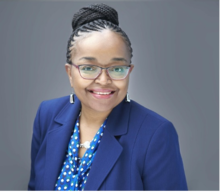
Dr. Maria Uriyo joins the HAP Faculty as an assistant professor with administrative responsibilities for the MHA Online Program. She was previously an adjunct professor in HAP where she taught Statistical Process Improvement (HAP725).
Dr. Uriyo was Program Director at Medicalincs LLC, an independent, minority-owned healthcare consulting firm located in Maryland. Projects that she collaborated on include providing project planning and logistics on comprehensive leadership training on the Maryland Primary Care Program Model (MDPCP), Practice Transformation for Maryland State Practice Transformation Coaches who supported Maryland Primary Care Practices participating in the Maryland Primary Care Program. She also oversaw Medicalincs LLC’s Rare & Expensive Medical Conditions (REM) Program that provided care coordination services to members residing in Baltimore City, Baltimore County, and Prince George’s and Montgomery Counties.
Previously, Maria was a project manager accountable for NCQA accreditation at Johns Hopkins HealthCare LLC’s (JHHC) Quality Improvement Department (QI) where she successfully oversaw the reaccreditation of JHHC’s three lines of business - Employer Health Programs (a self-funded health plan in Maryland), Priority Partners Managed Care Organization (a Medicaid Plan), and US Family Health Plan (a managed care program developed by the Department of Defense). These three plans provided care to over 275,000 covered lives. She led a QI Team that collaborated with JHHC’s Training Department to successfully create an ‘Introduction to NCQA’ e-training module that was accessible to all employees via JHHC’s Learning Management System (LMS). While in QI, Dr. Uriyo worked with leadership to create a dashboard for the Priority Partners’ Emergency Room Diversion project. She sought mentoring opportunities by becoming a co-preceptor and a manager/mentor of graduate interns. She was co-preceptor to Johns Hopkins School of Public Health graduate students who were interested in population health management within a managed care organization. As an internship mentor, she designed the program that recruited, onboarded, and placed interns to work on NCQA Accreditation projects within the QI Department
Dr. Uriyo was the lead analyst in the JHHC Care Management Department where she was responsible for the creation of longitudinal data sets containing more than 15 million records to compare healthcare and pharmaceutical patterns before and after Lyme Disease diagnosis. Other strategic projects include working with Priority Partners executives, the Chief Medical Officer and Provider Relations to build an algorithm that would successfully aggregate and generate monthly reports identifying plan members who were at risk for inpatient hospitalization.
Prior to joining JHHC, Dr. Uriyo has worked with the leadership of the US Federal Healthcare Informatics Group at HP, as well as consulted for Outcomes, Inc. (a consulting services and research firm that supports the pharmaceutical industry). She has worked at Kellogg’s and Cunningham Field & Research Services (a market research firm). At Kellogg’s, she led a consumer panel that was involved in the quality review of new and existing breakfast products as well as developed database applications for the Kellogg’s Sensory Evaluation Department. At Cunningham Field & Research Services, Dr. Uriyo participated in market research studies that included In Home Use Tests (IHUTs), Central Location Testing (CLTs), and Concept Testing on a wide range of consumer products.
She is the co-founder and executive director of Abacus Robotics (ARC), a non-profit that provides STEM learning opportunities such as competitive robotics, computer aided design and 3D printing to youth in Haymarket, VA. In addition, she and her husband, provide guidance to VEX robotics competitive teams that have won awards locally, nationally and at the world level.
Born in Tanzania, Dr. Uriyo holds a Ph.D. in Food Science from Virginia Tech and a Master’s in Health Systems Administration from Georgetown University.
She and her husband reside in Haymarket, Virginia. They have 3 children. She speaks fluent Swahili.
Let's Get to Know Janusz
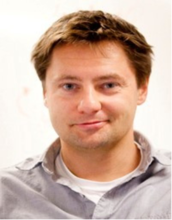
Dr. Wojtusiak, Associate Professor of Health Informatics and Director of the Machine Learning and Inference Laboratory, has research expertise that centers around developing and applying intelligent systems in medical, healthcare, and health applications. Specifically, he is working or worked on machine learning, health informatics, artificial intelligence in clinical decision support and knowledge discovery in medical data, evolutionary computation, intelligent evolutionary design, knowledge mining, health data analytics, and a wide range of applications of these fields in health care. His particular area of interest is in developing algorithms that derive simple and transparent models from complex healthcare data. In other words, he aims at building intelligent solutions that not only work but more importantly make sense to their users.
Dr. Wojtusiak has authored or co-authored about 100 research publications and presentations in these areas. Some of his current research includes work related to COVID-19 pandemics: Study of how people move and comply with social distancing; how to use technology to support contact tracing; and whether data can help identify people at higher risk who should be tested. Along with his team of doctoral students and collaborators, he also works on the prediction of patients’ functional decline over time, generation of realistic synthetic patient data, interpretability and transparency of machine learning methods in health, and prediction of wandering patterns in people with Alzheimer’s Disease.
Janusz collaborated with multiple national and international institutions including University of Louisville, University of Bremen, Germany, and AGH University of Science and Technology, Poland. In 2007, he was accepted as a fellow of Hanse-Wissenschaftskolleg (Hanse Institute for Advanced Study), Germany. Dr. Wojtusiak chaired a Knowledge Discovery and Data Mining Working Group (KDDM-WG) in American Medical Informatics Association (AMIA) in 2013-2014.
Dr. Wojtusiak serves as the Division Director for Health Informatics in the Department of Health Administration and Policy, and in this role oversees undergraduate, master’s and PhD programs in informatics. He has developed or taught several technical courses in the health informatics program: HAP 618 (Computational Methods in Health Informatics), HAP 730 (Healthcare Decision Analysis), HAP 752 (Advanced Health Information Systems), and HAP 780 (Healthcare Data Mining), HAP 880 (Advanced Health Data Mining), and more recently PhD-level HAP 850 (Health Informatics Research). He is developing new HAP 774 (Artificial Intelligence in Health) to be offered for the first time in the fall of 2021. He is experienced in developing and teaching online courses.
Finally, Janusz uses his technical skills and knowledge to support research computing in the College. He directs the Center for Discovery Science and Health Informatics that provides resources to the College: from hosing sensitive data in a secure environment, to supporting data analysis, to building custom software solutions. He consults with many faculty and students in the College on how to use technology to solve problems.

